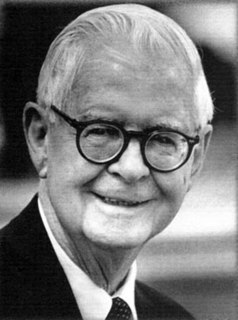A Quote by Aaron Eckhart
I'm always fascinated with how a person becomes a good quality person, a productive person, and how it happened to me, because I was a terror.
Quote Topics
Related Quotes
Consider prejudice. Once a person begins to accept a stereotype of a particular group, that "thought" becomes an active agent, "participating" in shaping how he or she interacts with another person who falls in that stereotyped class. In turn, the tone of their interaction influences the other person's behaviour. The prejudiced person can't see how his prejudice shapes what he "sees" and how he acts. In some sense, if he did, he would no longer be prejudiced. To operate, the "thought" of prejudice must remain hidden to its holder
When we try to describe one person to another …, what do we say? Not usually how or what that person ate, rarely what he wore, only occasionally how he managed his job—no, what we tell is what he said and, if we are good mimics, how he said it. We apparently consider a person's spoken words the true essence of his being.
If a person feels terrible, it usually should not be shown or acknowledged during a greeting exchange. Instead, the unhappy person is expected to conceal negative feelings, putting on a polite smile to accompany the “Just fine, thank you, and how are you?” reply to the “How are you today?” The true feelings will probably go undetected, not because the smile is such a good mask but because in polite exchanges people rarely care how the other person actually feels.
I need to say how I feel.aIf you were a political person before, and you just happened into a movie, to stop being a political person makes no sense. I always laugh and say, 'Dudes, if I have to choose, I'm a political person first. I would never do another movie again and be completely happy.' I need to say how I feel.
What I bring to the interview is respect. The person recognizes that you respect them because you're listening. Because you're listening, they feel good about talking to you. When someone tells me a thing that happened, what do I feel inside? I want to get the story out. It's for the person who reads it to have the feeling . . . In most cases the person I encounter is not a celebrity; rather the ordinary person. "Ordinary" is a word I loathe. It has a patronizing air. I have come across ordinary people who have done extraordinary things. (p. 176)




































